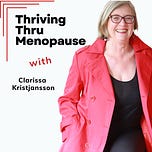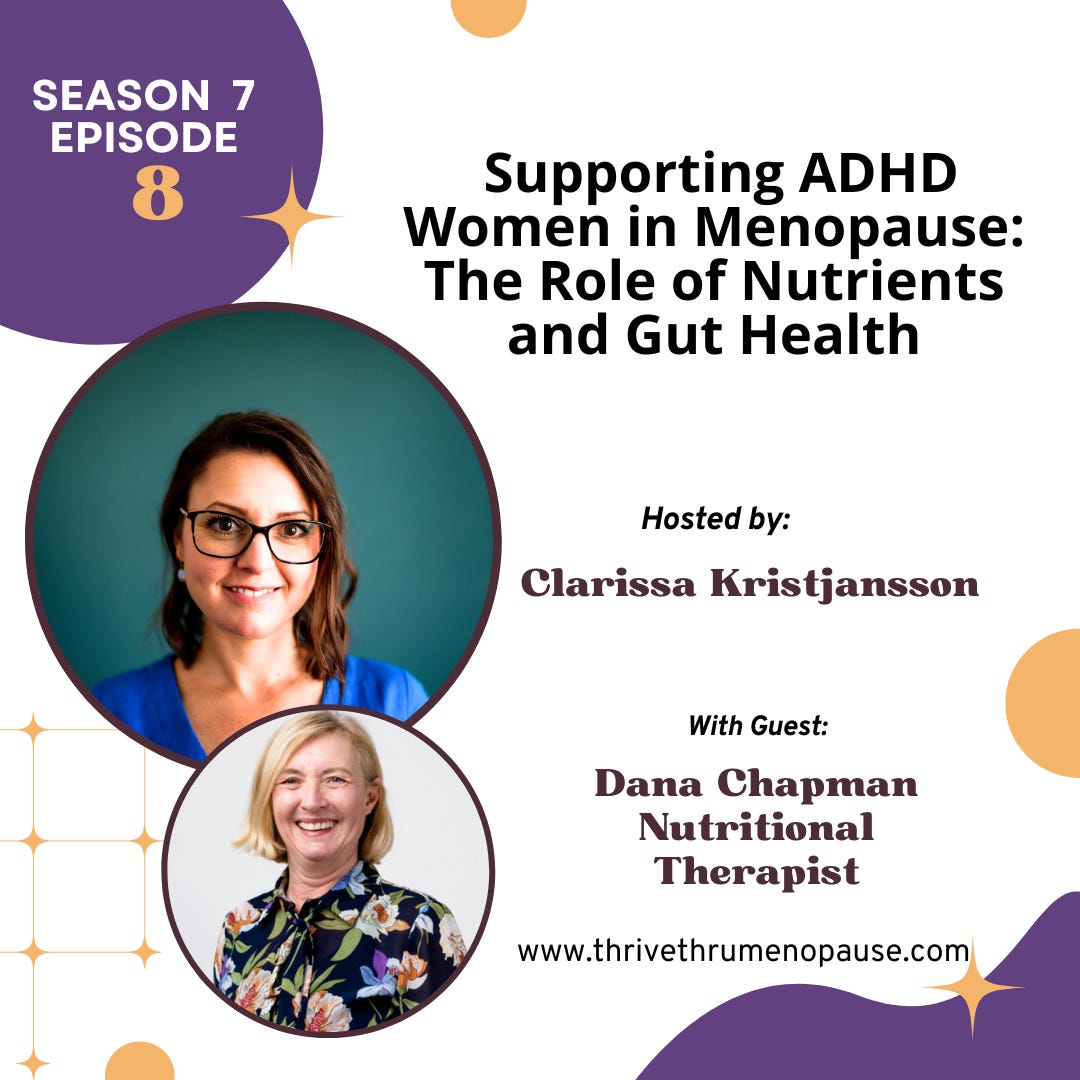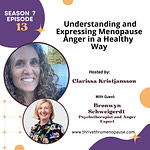In this insightful episode of Thriving Thru Menopause, Dana Chapman, a UK-based nutritional therapist specializing in menopause and mental health through the gut-brain axis, delves into the fascinating connection between ADHD and menopause.
We explore why more women are being diagnosed with ADHD during perimenopause, highlighting the significant role of estrogen in dopamine production. How understanding this relationship helps explain why ADHD symptoms can manifest or worsen during this phase of life.
Dana and Clarissa discuss how ADHD often presents differently in women compared to men, emphasizing the importance of recognizing these unique patterns for accurate diagnosis and effective management.
Dana provides a comprehensive overview of nutrition and gut health's vital roles in managing ADHD symptoms. And how key dietary components such as sufficient protein, omega-3 fatty acids, and essential nutrients like zinc, magnesium, and B vitamins are crucial for supporting brain health and reducing ADHD symptoms.
Dana shares practical tips for enhancing gut health, including the benefits of probiotics and prebiotics and considering supplements tailored to individual needs. The episode concludes with actionable advice for seamlessly incorporating these nutritional and lifestyle strategies into daily routines, empowering listeners to take control of their health and well-being.
Whether you're navigating ADHD, menopause, or both, this episode offers valuable insights and practical tips to help you manage symptoms and improve your quality of life.
Takeaways
ADHD symptoms may be more prevalent in perimenopause and menopause due to the decrease in estrogen levels, which affects dopamine production.
ADHD presents differently in women, often manifesting as mental health conditions like anxiety, depression, overwhelm, and low motivation.
Nutrition plays a crucial role in managing ADHD symptoms. One should focus on consuming sufficient protein, omega-3 fatty acids, and key nutrients like zinc, magnesium, and B vitamins.
Supporting gut health is important for managing ADHD. This includes eating a varied diet high in fiber and considering frozen fruits and vegetables to reduce waste.
Supplements like omega-3 fatty acids, zinc, magnesium, and B vitamins may benefit individuals with ADHD, but it's important to consult with a healthcare provider and consider individual needs and potential interactions with medications.
Tune in for an engaging and informative discussion that bridges the gap between ADHD and women's health.
Connect with Dana https://www.dc-nutrition.co.uk/
Grab a copy of Beyond Hormones: 7 Holistic Ways to Thrive Through Menopause https://bit.ly/49XBI1a












Share this post